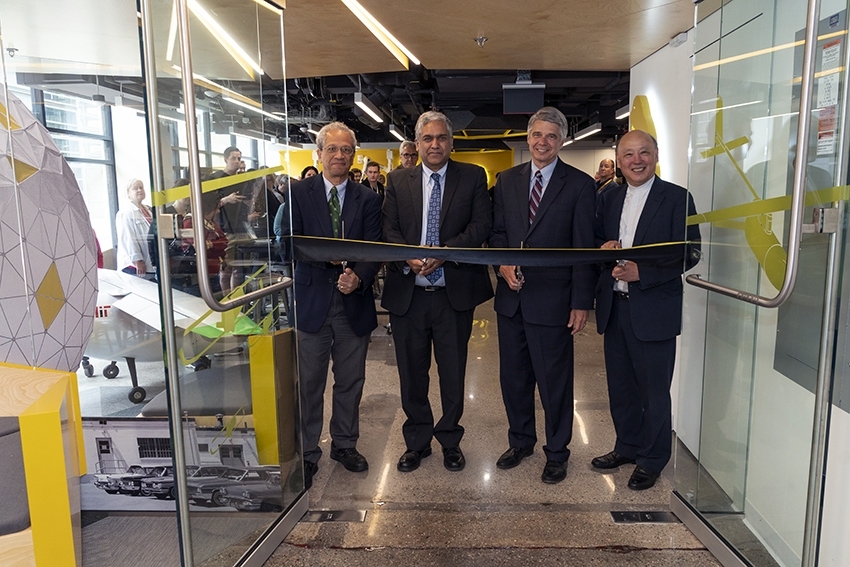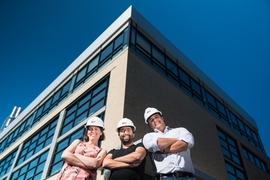MIT Lincoln Laboratory Beaver Works is opening a new space in the recently renovated Department of Aeronautics and Astronautics (AeroAstro) Building 31. This new facility builds on the successful partnership between Lincoln Laboratory and the School of Engineering by providing another location for innovation, collaboration, and hands-on development. The new site will also strengthen connections between AeroAstro researchers and practicing engineers at the laboratory while supporting collaboration on projects such as the Transiting Exoplanet Survey Satellite and cutting-edge research on autonomous drone systems.
To celebrate the opening of the new space, a ribbon-cutting ceremony was held on May 24. Speakers included Eric Evans, director of Lincoln Laboratory; Professor Daniel Hastings, MIT Aeronautics and Astronautics department head; and Professor Jaime Peraire, the H.N. Slater Professor of Aeronautics and Astronautics.
“It was the generosity and enthusiasm of our extended MIT family that made this vision a reality. Generations of researchers and students will use this greatly improved space to conduct research that will benefit the world,” says Peraire.
Beaver Works has a history of bringing Lincoln Laboratory and AeroAstro together to generate innovative solutions and expose students to opportunities in engineering, research, and service to the nation. Beaver Works pursues this mission through a broad range of research and educational activities that include capstone courses, joint research projects, the Undergraduate Research Opportunities Program, undergraduate internships, and STEM (science, technology, engineering, and mathematics) outreach for local schools. The new facility will also support multiple Independent Activities Period courses and community outreach classes for middle and high school students, including coding classes and the four-week Beaver Works Summer Institute.
“This facility will enable great students, staff, and faculty to work together on complex system prototypes,” said Evans. “We are looking forward to the creative, new technologies that will be developed here.”
The renovation added a second facility that is 4,000 square feet for Beaver Works researchers to use. With this space, laboratory and MIT affiliates will continue to enable research and development in autonomous air systems, bold air vehicle designs, small satellite designs, and new drone research areas to face coming challenges in subjects ranging from transportation to self-driving drone races.
Of the newly renovated space, Hastings said: “This facility will enable us to undertake real-world projects with our students in a manner that exemplifies ‘mens et manus.’” The Latin motto, adopted by MIT, translates to “mind and hand.” This motto reflects the ideal of cooperation between knowledge and practice — a partnership that the new Beaver Works space exemplifies.







